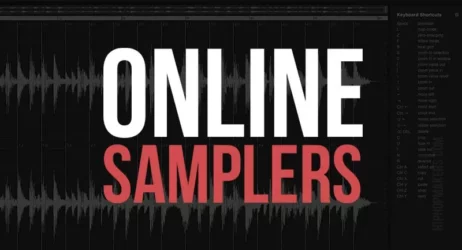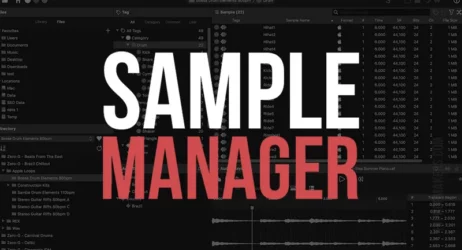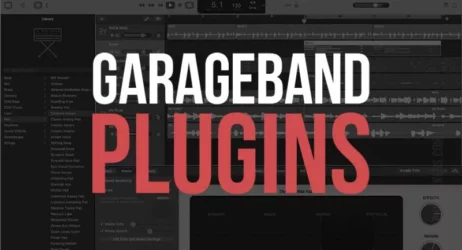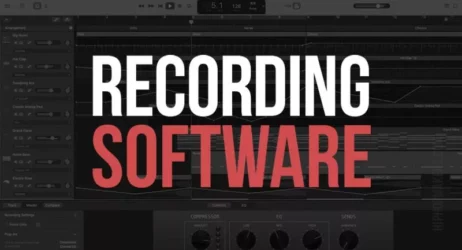This guide will answer what is a Ghost Producer, what they do, how ghost production works, and tips for becoming a ghost music producer.
- What is a Ghost Producer
- What Do Ghost Producers Do
- How Much Do Ghost Producers Make
- How Does Ghost Producing Work
- What Is Ghost Production In Music
- How Do You Become A Ghost Producer
- Do Ghost Producers Get Royalties
- Who Uses Ghost Producers
- Why Be A Ghost Music Producer
A ghost music producer is an individual that creates a specific piece of music but doesn’t get the credit for it. The music that a ghost music producer produces gets released by the name of another artist while keeping the identity of the real music producer anonymous.
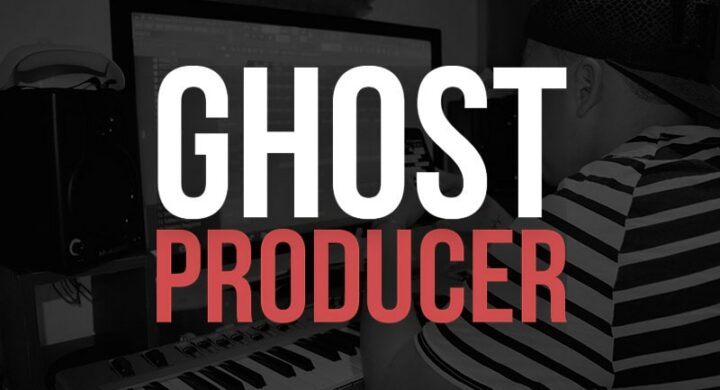
What is a Ghost Producer?
A ghost music producer, in layman terms, is an artist that produces some form of music of rhythm without getting credit for it. A ghost music producer is someone who is hired by another party to compose, create, edit, or draft a track anonymously.
The work done by a ghost music producer is credited to someone else – the ghost producer gets no credit for the piece of music and instead receives a sum of money for their services.
A ghost producer in music is very much like a ghostwriter in stories and articles where someone does the work, and someone else gets the praises, applause, and fame – the ghostwriter, gets to watch the extravaganza from the nosebleeds.
While working with a ghost music producer, usually, the person has to sign a confidentiality clause or non-disclosure agreement to ensure that the ghost music producer’s identity remains a secret.
The agreement also saves the other party from any lawsuits or claims that the ghostwriter might pursue in the future claiming rights to their published work.
Throughout musical history, you’ll see many cases of famous artists using ghost music producers to do their work for them in exchange for some compensation.
Contracts between KSHMR and Borgeous were leaked in 2016, revealing that KSHMR was ghost-producing tunes for Borgeous. Borgeous’ payments were clearly shown in these deals.
In addition, the agreement specified that KSHMR was renouncing all rights to the recordings as the composer and would not be publicly revealed as being affiliated with the tune.
Moreover, Alan Walker is one artist that employs several ghost producers. He most likely employs a ghost production crew that works for his record company and composes songs for him.
The famous track “Titanium” is ghostwritten too. In the song “Titanium”, Afrojack teamed with David Guetta.
Afrojack elected not to obtain authorship credit for his part when the contract was written. Afrojack did this because he did not want his brand associated with the more mainstream David Guetta.
Related: How to Be A Music Producer
People who know the ins and outs of the music industry and have worked with large record companies can attest to the importance of ghost producers to an artist. Several factors contribute to a successful career.
Using the services of a ghost producer can sometimes be exactly what propels an artist to their path to stardom.
What Do Ghost Producers Do?
Whatever a regular music producer does, ghost music producers do the same, except they don’t get the recognition, praise, and credit once their composition is released. A ghost producer can write songs, participate in the song’s production, and work with audio engineering and edits; the sky’s the limit.
In rare circumstances, ghost music producers can keep a percentage of the publishing or mechanical rights associated with the released composition.
You can think of the ghost music producer as a ‘manager’ for anything related to composition, taping, mixing, and remastering/mastering. Ghost producing involves more than just creating a music project from ground zero; every stakeholder has an artistic voice in the matter.
In the beginning, a ghost producer might begin with elementary concepts, links, and general notes. However, they may also get to play with MIDI files, audio stems, or even recorded audio.
The party that gets the credit is involved in every step of the development process, from presenting intros to soliciting input.
The end result is a track that is the client’s property but the work of the ghost music producer.
Related: What Is a Music Producer?
How Much Do Ghost Producers Get Paid?
The ultimate amount that a ghost producer gets paid for a particular track is hinged on the ghost music producer’s talent, experience, capability, and the affordability of the client using their services.
A ghost music producer’s compensation for a successful composition can be anywhere between $100 and $10,000 per track. However, it can go above and below these limits depending on the terms of the contract.
How Does Ghost Producing Work?
Ghost production is a commercial agreement in which a music producer creates a melody for another artist who then publishes it under their own name. Ghost producers get paid in the form of royalty disbursements or a fixed fee for their craft.
Essentially, a publishing house or a client hires a ghost music producer to create a track for them.
Before getting started, the ghost music producer signs a non-disclosure agreement or confidentiality clause to ensure their identity stays anonymous.
What Is Ghost Production In Music?
Ghost production in music deploys ghost producers who are musical gurus that provide great tracks to musicians and other producers while remaining anonymous to the general audience or, at times, by anyone.
The fact is that very few musicians create tracks solely on their own. A group of individuals frequently works on a track. And it’s reasonable given how much labor goes into creating a popular song.
A ghost producer might work as a co-producer or as the sole producer of a track. Producers may upload and sell full songs either royalty-free or in collaboration with other artists.
They are paid a certain fee for each track plus any royalty fee. However, getting a share in royalty might not always be in terms of payment.
How Do You Become A Ghost Producer?
If you aspire to become a ghost producer, you must start posting your work online (there are many platforms available) for the world to see. All over the globe, you’ll find many artists on the constant quest to look for capable ghost producers.
Publishing some of your best musical masterpieces opens your door to these artists. Once you’ve landed yourself a client, decide on the terms of the contract.
After your first client, you may observe that you’re getting more and more clients every passing day. Once you’ve gained enough exposure and experience, you can even apply to full-fledged music studios and production houses to add wings to what you do.
Becoming a ghost producer might be a good thing, but you must remember one key aspect of it – you won’t be getting credit for any of your work.
If that’s acceptable to you, you can start your ghost music production journey now!
Do Ghost Producers Get Royalties?
Whether a ghost music producer gets a share in royalties once the album is released depends on the client and the terms of the agreement. Most ghost music producers are compensated for their labor in the form of a flat, fixed fee or a share in royalty payments.
On average, a ghost producer makes $100-$10,000 per track, and this amount may be in the form of royalties or a fixed payment.
Who Uses Ghost Producers?
Many popular artists, composers, and singers worldwide use ghost producers to do the work for them. Ghost producers are even used in renowned publishing houses and studios.
Some individuals argue that hiring ghost producers is unethical since it is unfair for the artist to claim credit for someone else’s effort. Fans of the artist feel they have completed all of the work and are competent and skillful enough to create this masterpiece.
Artists that utilize ghost producers aren’t always less skilled than those who generate their own tracks. Sometimes it’s just an issue of the musician not having enough time to create the song owing to other obligations. However, this does not prevent many individuals from believing it is unjust.
In contrast, others believe that hiring ghost producers is quite appropriate. The ghost producer is well aware of what they are doing and will not be given credit for their efforts. They sign a deal knowing that the artist they are producing would receive all of the credit.
A top-notch musician must generate songs and have the necessary technical abilities and creative energies to create exceptional and high-quality music. Ghost production is used in Electronic Dance Music because DJs, like pop musicians, occasionally require assistance in creating tunes.
Here are some of the music artists that have used ghost producers to do their work:
- Diplo
- Steve Aoki ( DJ )
- Milli Vanilli
- Tiesto
- The Stafford Brothers
- Hannah Wants
- DVBBS
- Markus Schulz
- Timmy Trumpet
Why Be A Ghost Music Producer?
Some people work as ghost producers because they enjoy producing music but do not want the attention that comes with being a musician. Others merely do it to acquire experience when they first start in the music industry. It’s an opportunity for them to gain experience making genuine music, and they’ll frequently be able to carry these music production skills with them throughout their career.
Summary of Ghost Producers
Ghost music producers are people who create music but don’t receive credit for it – they’re ghosts. Music produced by a ghost music producer is released under the name of another artist, while the real music producer’s identity remains secret.
A ghost producer is a pivotal yet often overlooked element in the music industry, quietly crafting the beats that fill our favorite songs.
These professionals blend sound and music theory, translating ideas into compelling tracks without taking center stage. The ghost-producing process may be hidden, but its impact on the music scene is undeniable, creating the foundation for DJs and artists to shine.
Ghost producers often operate behind the scenes in music production, creating original tracks that other artists choose to perform.
They infuse life into the music business by producing and mastering music in genres ranging from house to pop. Some even specialize as EDM ghost producers, delivering high-energy sounds for the hip-hop, dance, and electronic music world to enjoy. Their work, complete with exclusive vocals, often finds its way into DJ sets, captivating listeners worldwide.
The rise of the ghost-producing platform has revolutionized the way music is made and released.
Independent artists and record labels alike have found value in these services, seeing them as a crucial part of the music career landscape.
Artists can focus on performing and expressing their creativity, while ghost producers handle the technical aspects of mixing and mastering. The result? A perfect blend of ideas, sounds, and talents that culminate in music tracks we all love to listen to.
A ghost producer’s work can range from creating a sample pack to completing a project file in FL Studio.
They sell their expertise and ability, offering a valuable resource to the music industry. The release of these songs may not bear their name, but their influence resonates each time we press play.
From the EDM ghost producers shaping the club scene to those crafting tracks for the next big pop release, ghost producers play a significant role in making music that moves us.
Let’s appreciate the mix of creativity and technical skill that goes into every song and the ghost-producing platforms that facilitate this unique process.
In the end, a ghost producer’s role in the music industry is vital, helping artists and DJs release their best work and shaping the soundscape of our world.
Whether you’re an artist, a DJ, or a music lover, the next time you listen to a track, take a moment to appreciate the invisible hands that have crafted the sounds you love.
I hope you found this information on ghost music producers helpful.


